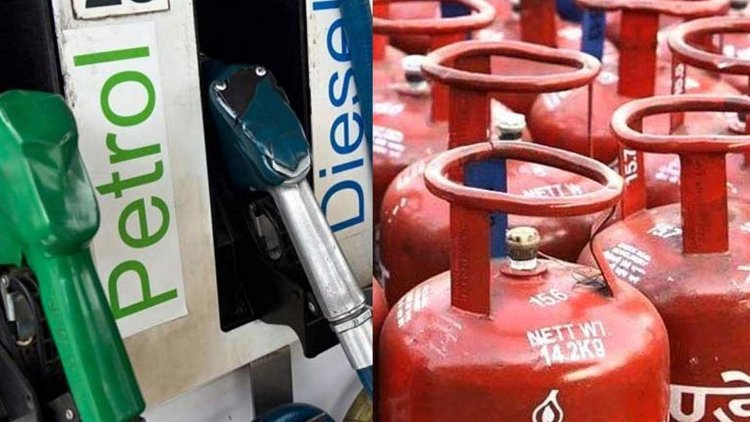Excise Duty On Petrol And Diesel Would Be Reduced By Rs 9.5 And Rs 7 Per Litre, Respectively, By The Government
Finance Minister Nirmala Sitharaman took to Twitter today to highlight a range of actions taken by the Narendra Modi government over the last year, the most notable of which is the decision to lower the central excise duty on petrol by Rs 8 per litre and diesel by Rs 6 per litre. Late in the evening, the Indian government announced that import duties on coal will be reduced to 0% from 2.5 percent.

Finance Minister Nirmala Sitharaman took to Twitter today to highlight a range of actions taken by the Narendra Modi government over the last year, the most notable of which is the decision to lower the central excise duty on petrol by Rs 8 per litre and diesel by Rs 6 per litre. Late in the evening, the Indian government announced that import duties on coal will be reduced to 0% from 2.5 percent.
This will lower petrol prices by Rs 9.5 per litre and diesel prices by Rs 7. The government will lose roughly Rs 1 lakh crore in revenue as a result of the move.
"The globe is going through a terrible period right now. Even as the world recovers from the Covid-19 outbreak, the Ukraine crisis has caused supply chain disruptions and shortages of a variety of items. In many nations, this has resulted in inflation and economic suffering "In a series of tweets, she stated.
"While the excise decrease on fuel will cost the government roughly Rs 1 lakh crore per year in revenue, the subsidy on gas cylinders will cost the exchequer Rs 6100 crore per year," the finance minister stated emphatically.
"Today, we are announcing more initiatives to support our people," FM wrote in response to the government's "promise to help the poor and common man."
'The welcome cut in excise duty will assist to moderate inflation and complement monetary policy in the future.' We forecast cpi inflation of 6.5-7.0 percent in May 2022. While the budgetary cost is substantial, it can be offset by higher-than-expected receipts from other taxes. Even after the excise decrease, we now expect the government's tax receipts to exceed the budget predictions by at least Rs. 1.3 trillion," said Aditi Nayar, ICRA's Chief Economist.
Here are some additional crucial takeaways:
- The government would provide a subsidy of Rs 200 per gas cylinder (up to 12 cylinders) to nearly 9 million Pradhan Mantri Ujjwala Yojana beneficiaries this year. Our mothers and sisters will benefit from this. This will result in annual revenue of roughly Rs 6100 crore.
- The Centre is also lowering customs duties on raw materials and intermediaries for plastic products, which are heavily reliant on imports. As a result, the final product's cost will be reduced.
- On a similar line, the Centre is adjusting customs duties on iron and steel raw materials and intermediaries to lower prices. Import duties on some steel raw materials will be decreased. Some steel items will be subject to an export tariff.
- Regarding cement availability, she stated that steps are being taken to improve cement supply and lower cement costs through better logistics. The government will release notifications with specific details on all of the above within the hour.
Despite the difficult international scenario, Sitharaman continued, the government has guaranteed that basic items are not in short supply. Even a few developed countries, she continued, couldn't avoid certain shortages or interruptions.
India's wholesale and consumer prices rose at their quickest rates in years in April, leading the central bank to raise interest rates during an unexpected policy meeting earlier this month.




 admin
admin 




















